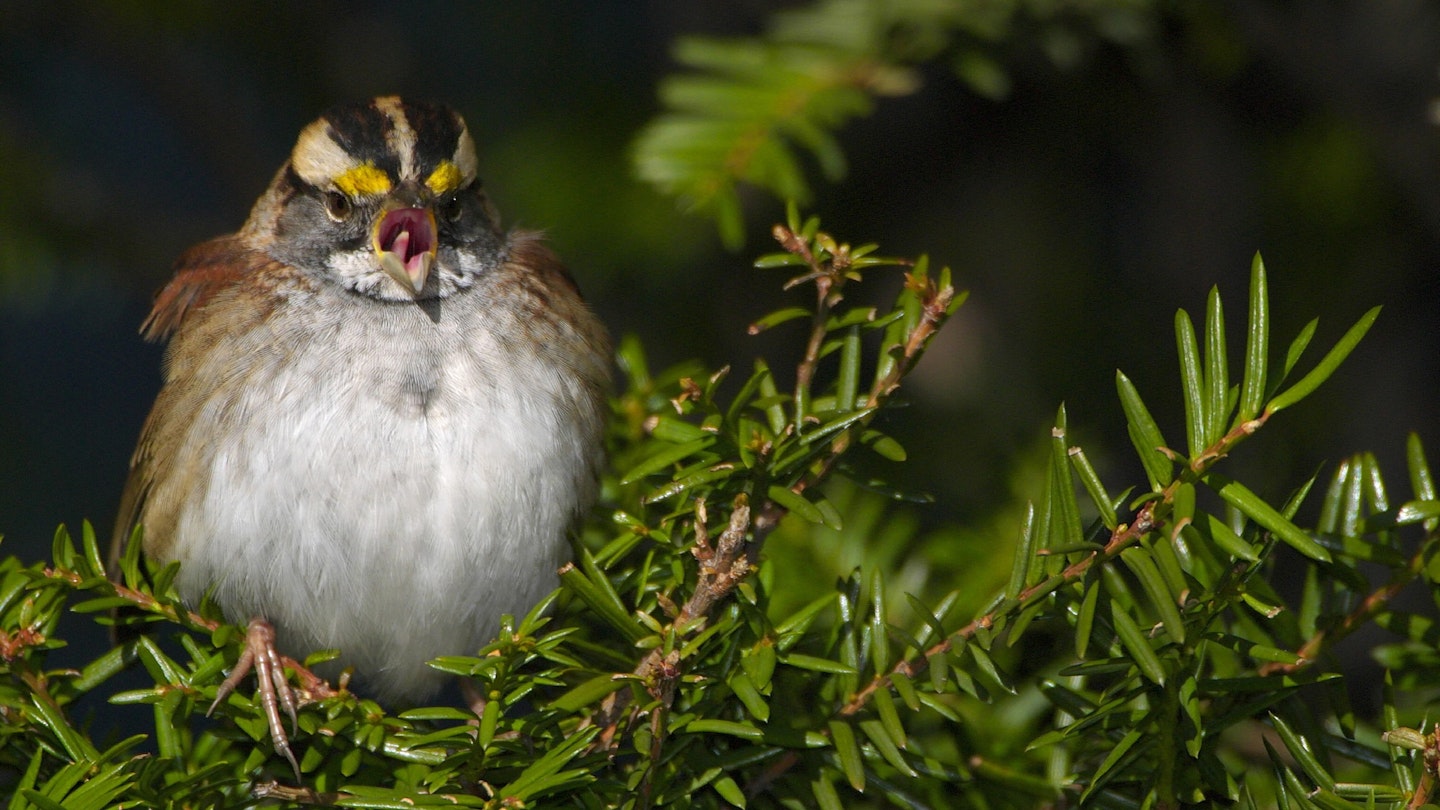The Evolution of White-Throated Sparrows’ Songs in Canada
Using recordings collected by bird watchers over 20 years, researchers have discovered that male white-throated sparrows in Canada are singing a new song. While some bird species change their songs over time, these changes tend to remain within local populations, becoming regional dialects. Surprisingly, this new variant has spread across 3000km throughout the country.

Traditionally, white-throated sparrows sing a whistled song that ends in a repetitive triplet of notes, which was the common variant widely noted in surveys across Canada in the 1960s. This triplet-ending has been likened to the rhythm, “Oh, my sweet Canada, Canada, Canada.” However, between 1960 and 2000, doublet-ending songs began to emerge and replace the triplet-ending songs west of the Rocky Mountains. This new version, which lacked the third note in some phrases, transformed into a doublet-ending song, resembling “Oh, my sweet Cana, Cana, Canada.”
From recordings of 1785 birds compiled between 2000 and 2019, the research revealed a progressive adoption of the doublet-ending song. This trend started in western Canada and made its way 3000km eastward. Genetic testing and geolocator tracking uncovered that birds from different regions wintering in the same areas may learn from one another through song tutoring, thus facilitating the cultural spread of song dialects to new locations. By 2019, only the birds on Canada’s far eastern edge continued to use the traditional triplet song. “As far as we know, it’s unprecedented,” says Ken Otter, a biology professor at the University of Northern British Columbia. “We don’t know of any other study that has ever observed this kind of cultural evolution of a song type.”

Songs serve multiple purposes, such as defending territories and attracting females. The researchers speculate that the spread of the doublet-ending song might be due to female sparrows being attracted to the novelty this song introduces. “In previous studies, females typically prefer the local song type,” explains Otter. “However, in white-throated sparrows, we might be witnessing a scenario in which females are attracted to songs that are atypical in their environment. If this hypothesis is correct, it confers a significant advantage to any male capable of singing a new song type.”
Furthermore, the researchers have noted a third song variant that adjusts the volume mid-note and appears to be spreading even more rapidly than the doublet-ending song. The full study, titled “Continent-wide Shifts in Song Dialects of White-Throated Sparrows,” is published in Current Biology and provides deeper insights into this phenomenon, available for those interested in exploring this topic further.




